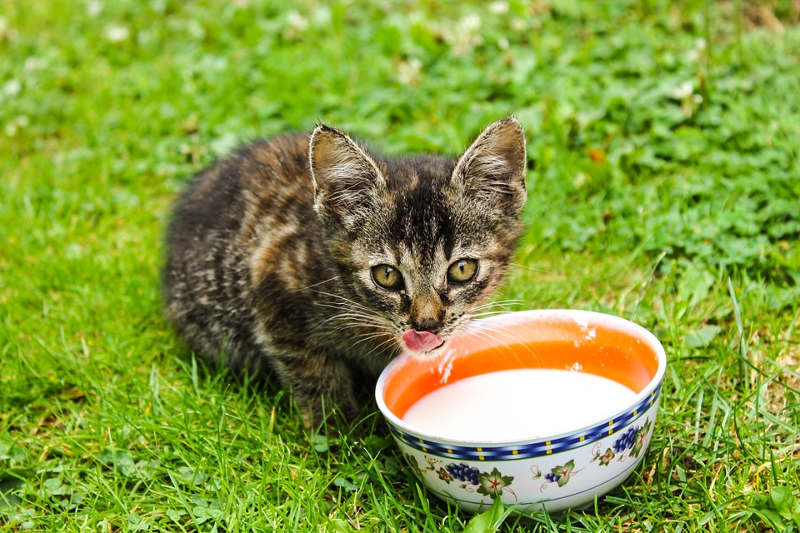It’s a common misconception that a saucer of milk is an ideal snack for cats. After all, images of kitties enjoying farm-fresh milk have been commonplace in movies and television for decades. Cats are drawn to high fat foods, and dairy certainly meets that description. Cats often associate with positive memories, and drinking milk may remind them of the experiences they had while nursing from their mother.
But is milk really a good treat for our feline friends?
In simplest terms, no. A vast majority of cats are lactose intolerant, meaning they have difficulty digesting lactose. Lactose is a natural sugar found in dairy products. It is also found in mother cat’s milk. Cats need the digestive enzyme lactase in order to digest milk properly. However, kittens are born with a limited supply of lactase in their system, which aids them in digestion throughout their early weeks. Kittens will continue to produce lactase on a small scale while nursing.
As cats grow out of infanthood, they produce less and less lactase, making it increasingly difficult to digest dairy products.
When a lactose intolerant cat drinks milk, the lactose goes through their system undigested. It moves through the digestive tract, pulling water along with it. Bacteria that are found naturally in the colon can also ferment these sugars, which leads to the creation of volatile fatty acids. The end result, for most cats, is a series of unwanted symptoms. Within 8 to 12 hours of ingesting dairy products, cats may experience diarrhea, upset stomach, and also vomiting.
While certain cats can digest dairy just fine, that is certainly not the norm. Only a very small percentage of cats continue to digest dairy unhindered through adulthood.
From a dietary perspective, adult cats don’t need milk to meet any of their nutritional needs. In fact, most veterinarians will recommend against it.
Still, some cat treats contain dairy. Typically they are in yogurt or cheese form, a dairy product that has been fermented. Different forms of dairy contain different amounts of lactose, and fermented forms of this sugar tend to be much easier for cats to digest. Keep in mind, treats should make up a very small percentage of your cat’s overall diet – 5% or less.
Kitten milk replacers, which are bottle-fed to very young cats, are dairy-based. However, these products have been heavily modified to closely resemble the composition of cat’s milk. If you are fostering small kittens, straight dairy is not a healthful or nutritionally adequate option for them. For non-weaning kittens, to adult and senior cats, there is no substitution for fresh, clean water.
When it comes to offering your cat a treat, there is no shortage of appetizing and nutritious options to choose from. Ditch the dairy in favour of a more stomach-friendly alternative.
Brandon Forder, known as The Pet Expert, is vice-president of Canadian Pet Connection, an industry leader in healthy pet lifestyles. Brandon is certified in pet nutrition, and has more than twenty-five years’ experience specializing in pet health and behaviour. He has written hundreds of informative pet-related articles for newspapers, magazines, radio, and the popular Ask the Pet Expert Blog. Brandon is highly skilled in pet problem solving, and enjoys teaching others about smart and responsible pet ownership. To learn more, visit www.CanadianPetConnection.ca.












